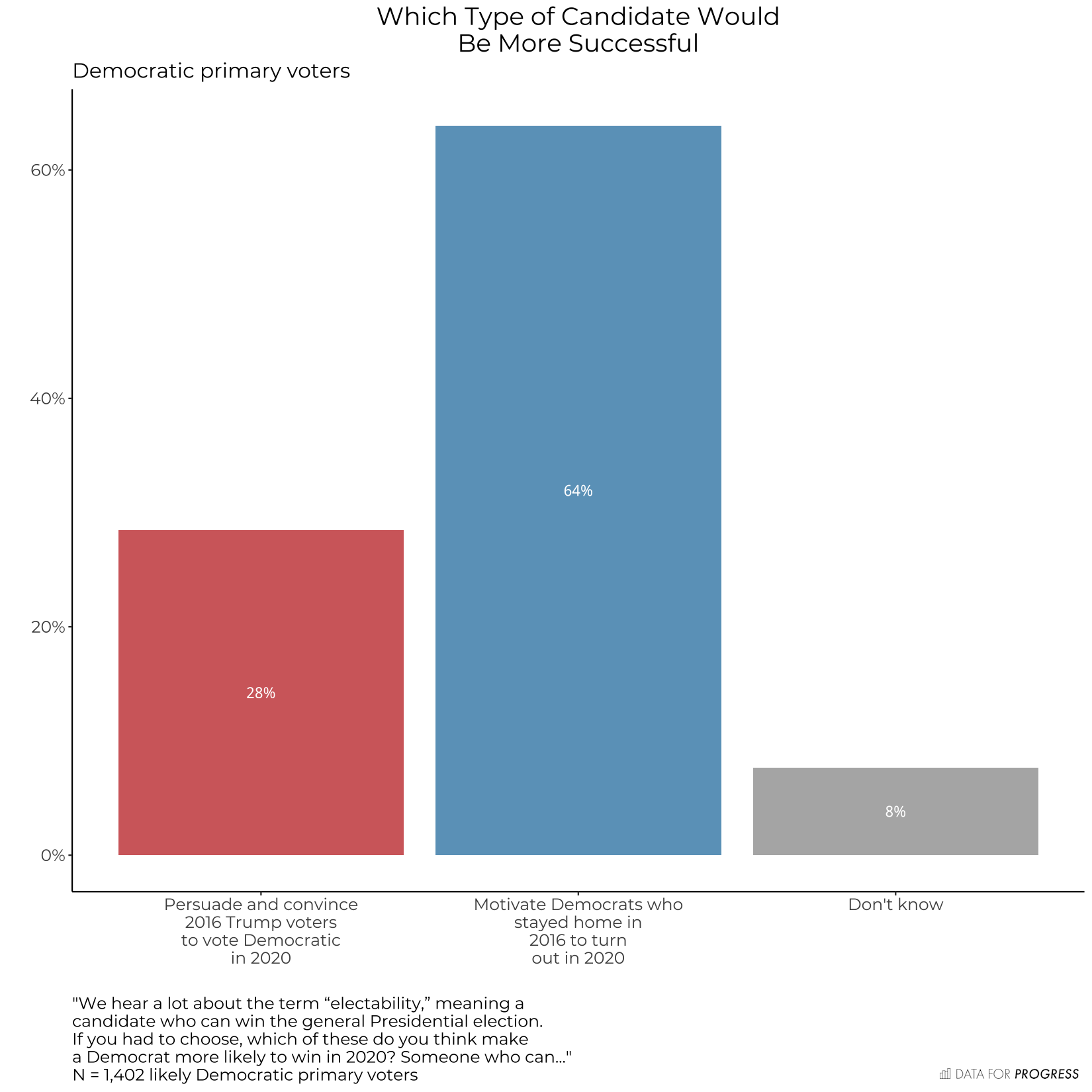Here Is The State Of The Democratic Field Before The Debates
In the immediate run-up to the first debates, Data for Progress and YouGov Blue began fielding a massive survey of Democratic primary voters across the US. A second wave of this survey starting fielding immediately after last night’s debate. We expect all microdata for both waves to be available next week. We surveyed 1,402 Democratic primary voters and asked them to consider several versions of the same fundamental question: Who should the Democratic nominee be? Here, we present the results of those items so far.
As in a previous round of our Presidential surveys, we asked voters to select all of the candidates they were considering voting for. Even though this item allows for a wide range of support levels, there has only been a little overall movement on this item over the past few weeks. On that item, our results match others showing a strong surge for Massachusetts Senator Elizabeth Warren: In our data, she is being considered by fully 57 percent of Democratic primary voters, statistically tied with but narrowly ahead of Vice President Joe Biden.
On the other side of things, however, voters have become considerably more willing to report that they are actively not considering candidates than voters in previous waves of our Presidential surveys. Compared to the previous survey on which we asked this item, where most of the lower-tier candidates had around twenty percent net opposition, that quantity has risen to the mid twenties-low thirties percent net opposition.
That said, asked another way, we still see Vice President Biden comfortably ahead of other candidates when we ask the same item but constrain voters to only select a single choice. In this version of the item we simply asked, “If you had to choose today, which candidate would you vote for in the 2020 Democratic presidential [primary or caucus] in your state?” with respondents being permitted a single answer. There, we see Biden leads with 30 percent, to Warren’s 24 percent, Vermont Senator Bernie Sanders at 16 percent, and California Senator Kamala Harris at 7 percent.
Then, we asked voters to consider a drastically different version of the primary question. We asked them to imagine they could magically make any of the candidates President, without having to trifle with that whole general election thing. We asked,
Now, imagine that you have a magic wand that could make any of the candidates President. That candidate would not have to compete in the general election, and would automatically become the President. If you could use that magic wand to make any one candidate President, who would you choose?
While Senator Warren is second overall in the regular horserace item, more voters would like to see her be President than Vice President Biden if they would be permitted to skip the general election.
And, of course, we could not have such a survey without asking the exact opposite: We also asked voters to select a candidate they would absolutely not want to win the election. Specifically, we asked,
Regardless of who you would vote for in the 2020 primary or caucus, who would you absolutely NOT want to become President, even if it meant Donald Trump winning re-election?
Perhaps unsurprisingly, we found that most Democratic primary voters really want to win. “None of these” was the runaway winner of this item. We also found some small shares of Democratic voters who would prefer a couple of the frontrunners not to win at all costs. But overall, Democrats are not prepared to concede 2020 even if an unpalatable candidate emerges.
Also, notably, we asked voters to choose between two distinct forms of the concept of “electability.” We asked voters:
We hear a lot about the term “electability,” meaning a candidate who can win the general Presidential election. If you had to choose, which of these do you think makes a Democrat more likely to win in 2020? Someone who can…
<1> Persuade and convince 2016 Trump voters to vote Democratic in 2020
<2> Motivate Democrats who stayed home in 2016 to turn out in 2020
<3 fixed> Don't know
Of these options, Democratic primary voters are much more interested in a candidate who can motivate Democratic voters who stayed home in 2016.
By a more than 2-to-1 margin, likely Democratic primary voters would prefer a candidate who can raise turnout among likely Democratic voters than can persuade Trump voters to vote Democratic in 2020.
As our survey includes both a pre-debate and post-debate wave, we will be uniquely situated to report on the consequences of the first debate for candidates and voters alike. As this survey came out of the field literally within moments of the start of the first debate, consider this your benchmark for where things stood in the immediate pre-Debate One era.
John Ray is Senior Political Analyst at YouGov Blue. Data available upon request due to a four day media embargo. Email john.ray@yougov.com.
Sean McElwee is co-founder of Data for Progress.
The pre-debate wave of this survey fielded from June 25-June 26, 2019 on YouGov’s online panel. The results are weighted to be representative of the population of Democratic voters by age, race, sex, education, geography, and past vote choice.






